I am always trying to find new ways to make fun of educational jargon. I really dislike words like “differentiate,” “scaffold,” and “unpack” because they take a fairly simple concept that most teachers do anyway and turn them into complicated, irritating non-sense.
Even worse are condescending phrases like “Remember your why!” This is meant to remind teachers to remind themselves why they chose to become teachers in the first place. It also tends to come before, during, or after a particularly horrible experience. We don’t need to remember why we’re there. If we’re still there, we’re probably already contemplating why about fifty to one thousand times per day.
Don’t ask me to remember why I chose to pair these terms with ridiculous ’80s hairdos (see what I did there!). It just felt right at the time. So for your enjoyment, here they are, along with the actual definitions in case you are writing lesson plans with a specifically irritating format. And if there are any terms I missed, please let me know in the comments!
Get the Books That Started It All
Before the blog, the podcast, the merch store… there were the best-selling books.
If you like the content on this site, then you’ll LOVE the Teacher Misery books. They’re jam-packed with teaching insanity, ridiculous true stories, and all the commiseration about the profession you’ve come to know, adore, and respect.
Follow the links below to get your copies today!
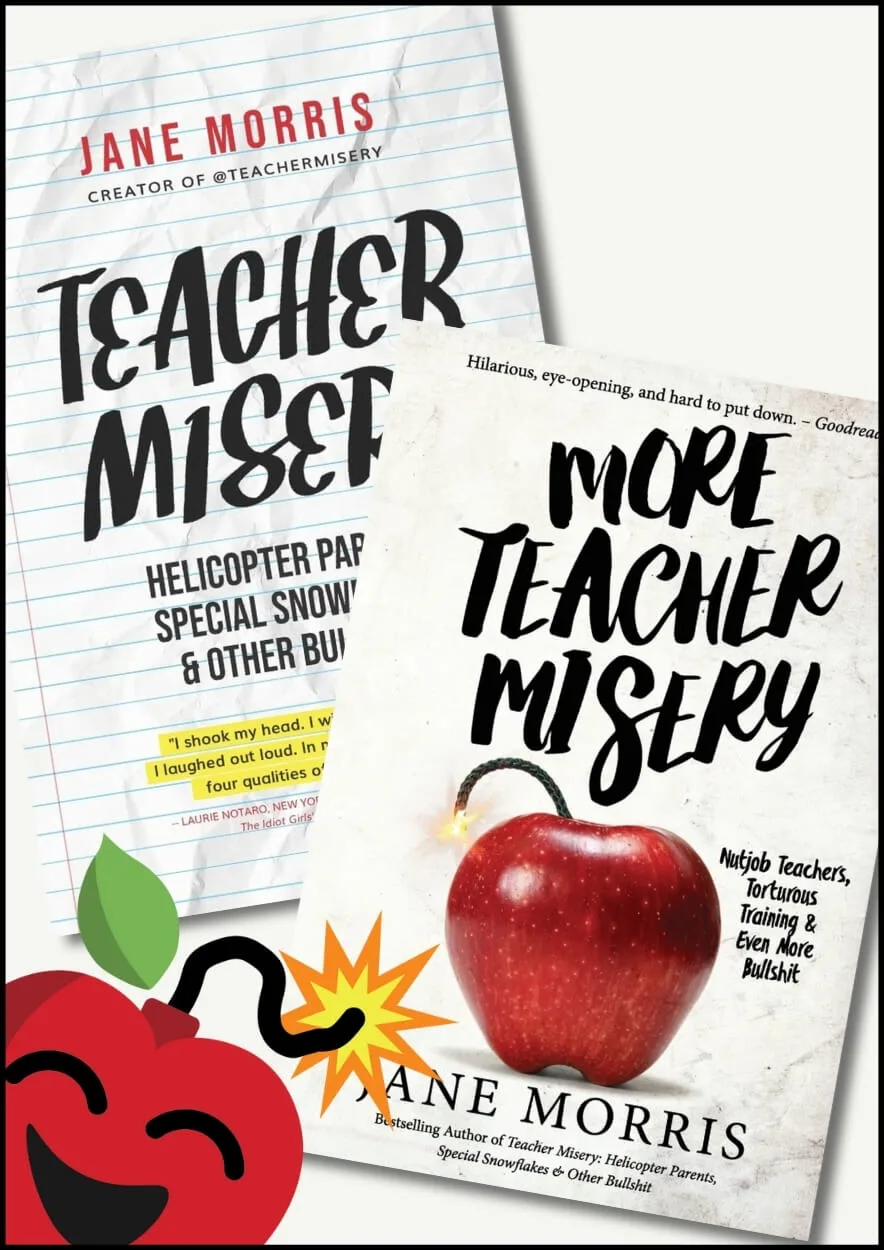
80s Hairstyles + Sarcastic Takes on Education Jargon
It’s the wombo-combo you never knew you needed!
These hairstyles are ZANY. But then, so is teaching…
Ready for this seamlessly aligned collaboration that really never should have worked? (Unless industry leads had stretched and degraded the jargon so much it lost all meaning.)

To “be intentional” in educational jargon means the same thing it means in any other setting. Do things on purpose as opposed to having math students learn how to make pizza dough or something.
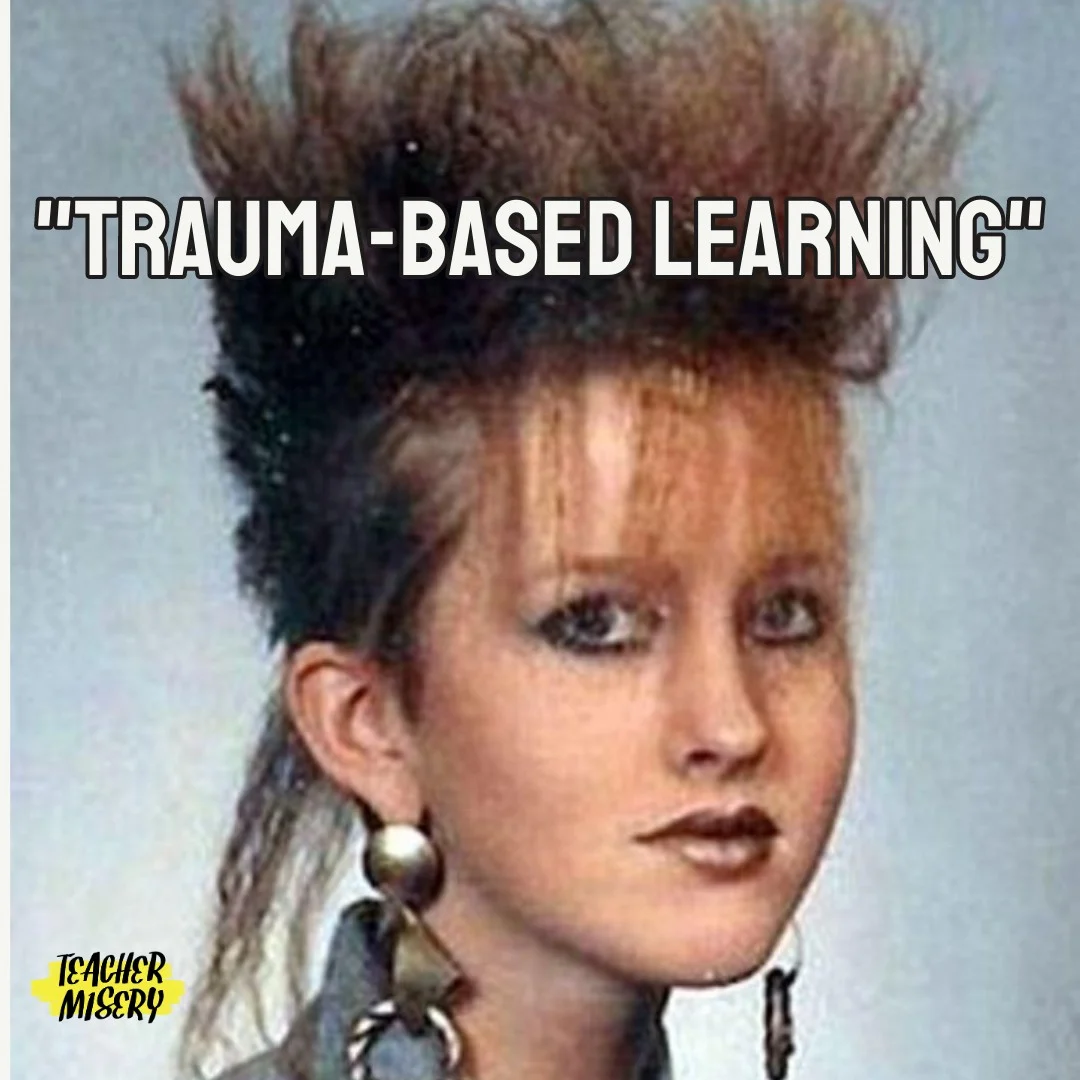
Trauma based or informed learning or teaching is considers how trauma impacts a student’s learning and behavior and adjusts to it accordingly. This is something teachers have had to do on a regular basis since the dawn of time with no resources or help.
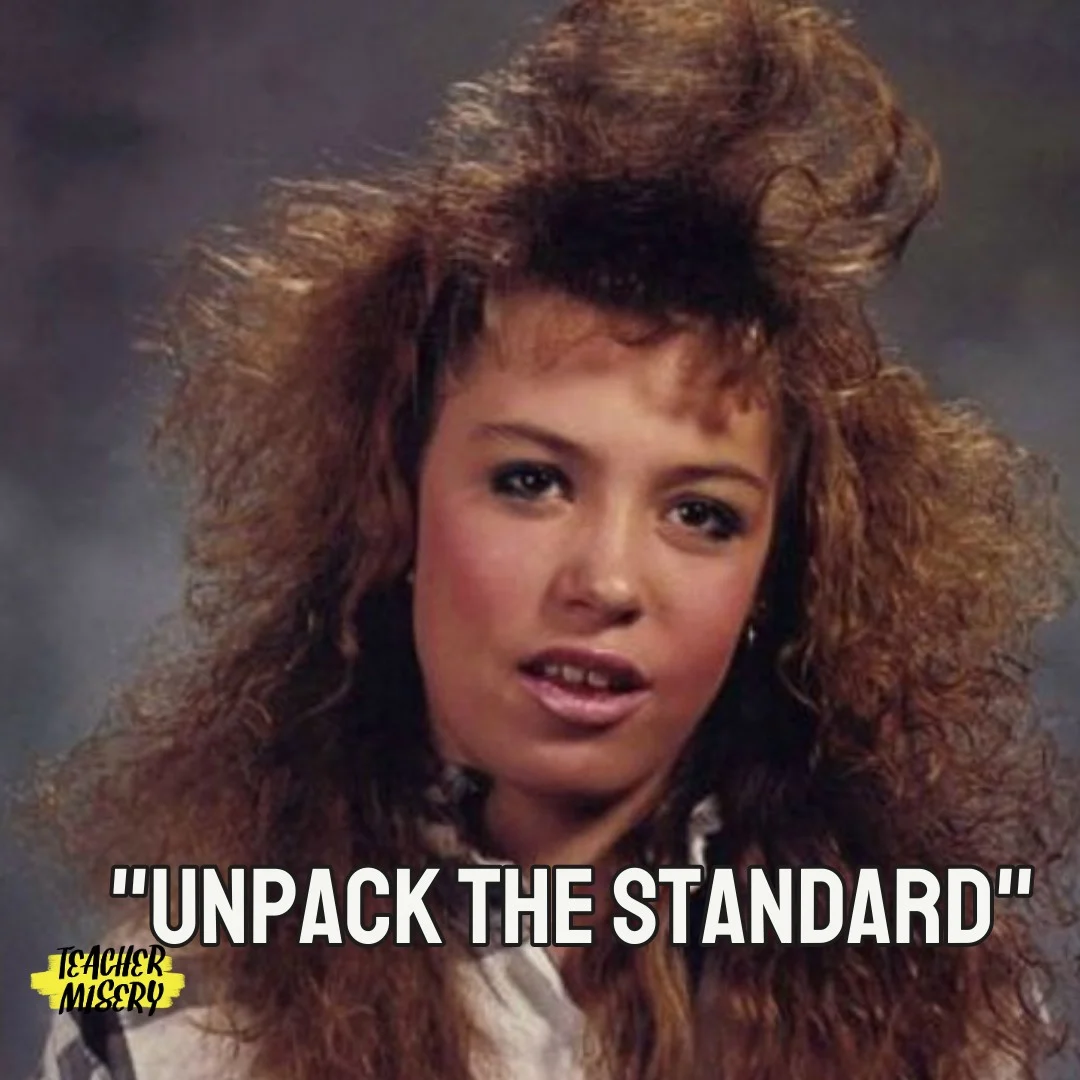
To “Unpack the standard” involves “teachers taking a deep dive into the content that will be taught.” But what does that mean? It means “to analyze language, extracting clues that describe aspects of the standard that students need to know,” and “creating the framework on which the actual learning will take place.” Still unsure what this term means? Try running around in a tiny little circle over and over again until you get dizzy, fall down, and forget what you were supposed to be doing in the first place. Now you have unpacked the standard.
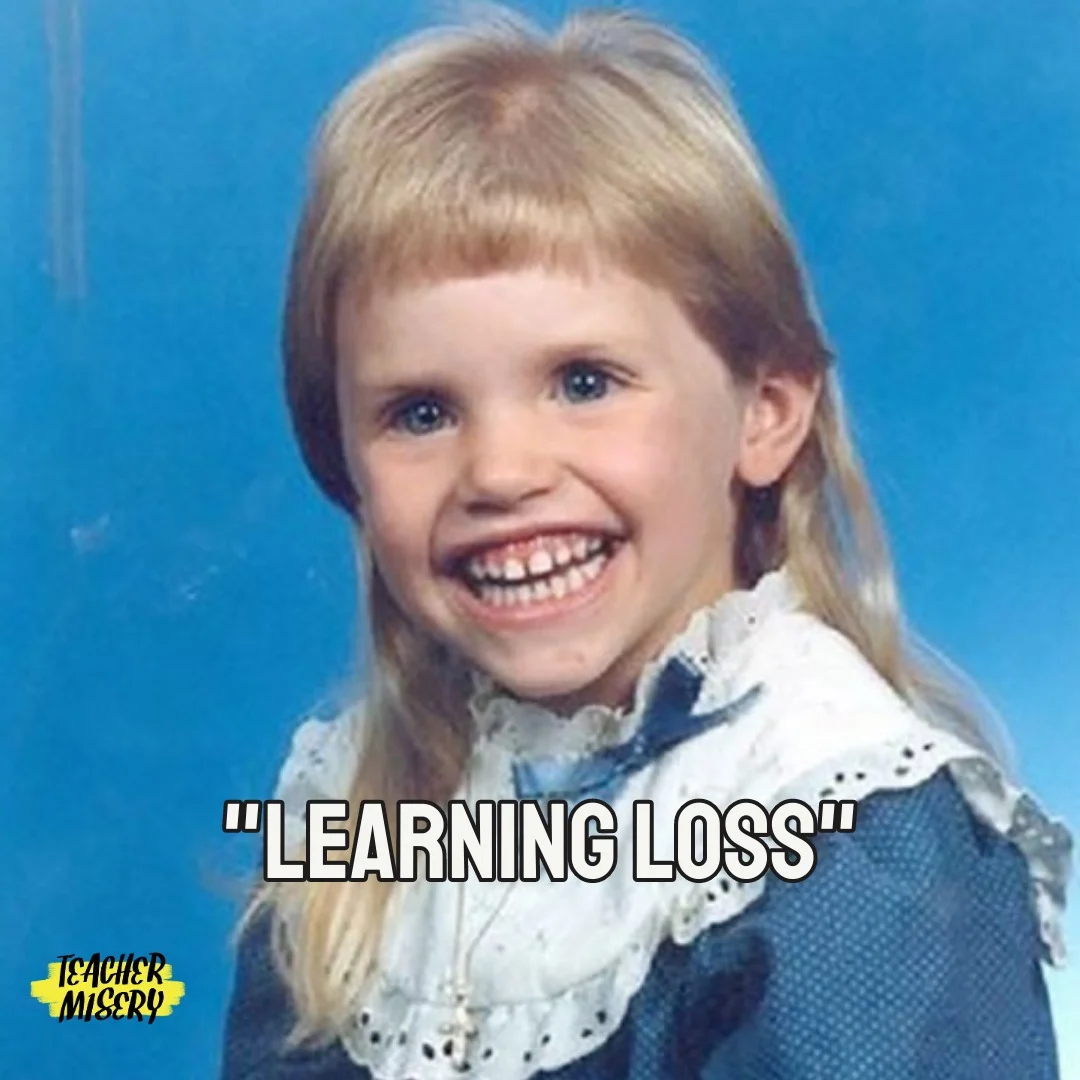
“Learning loss” is when students forget or lose knowledge they previously gained in school as a result of missed or disrupted education. This term became super popular during COVID, when students forgot how to pay attention, sit up straight, and not blurt out every single thought that passes through their brains.
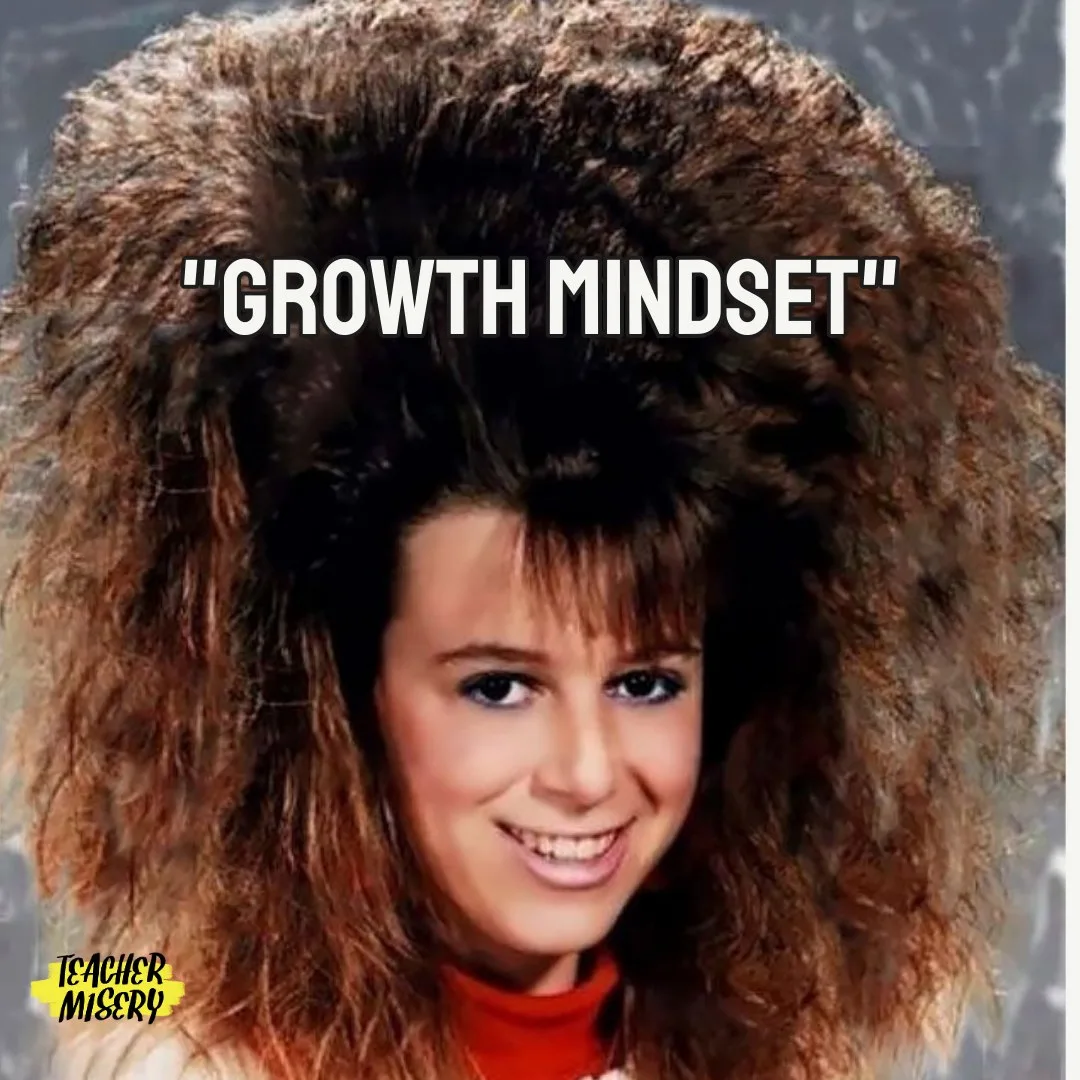
“Growth mindset” means that you don’t see failure as a bad thing but as a springboard for growth. Even if you failed because you never went to class or did any work, you can still grow from that experience because when you weren’t in class you were smoking weed with some really interesting people who live in the sewer down the street from your house.

“Remember Your Why” means that if you have a clear reason for being a teacher it will make it easier to endure the most stressful days. This is a term that administrators will use when they can sense that you will probably resign after a student stabbed you in the face with a pencil.

Rigor is a very fancy way of saying “hard” or “difficult.” There is also no way to have the right amount of rigor in your class. You are always moving way too fast and leaving kids behind while simultaneously moving too slowly and boring them all to death.
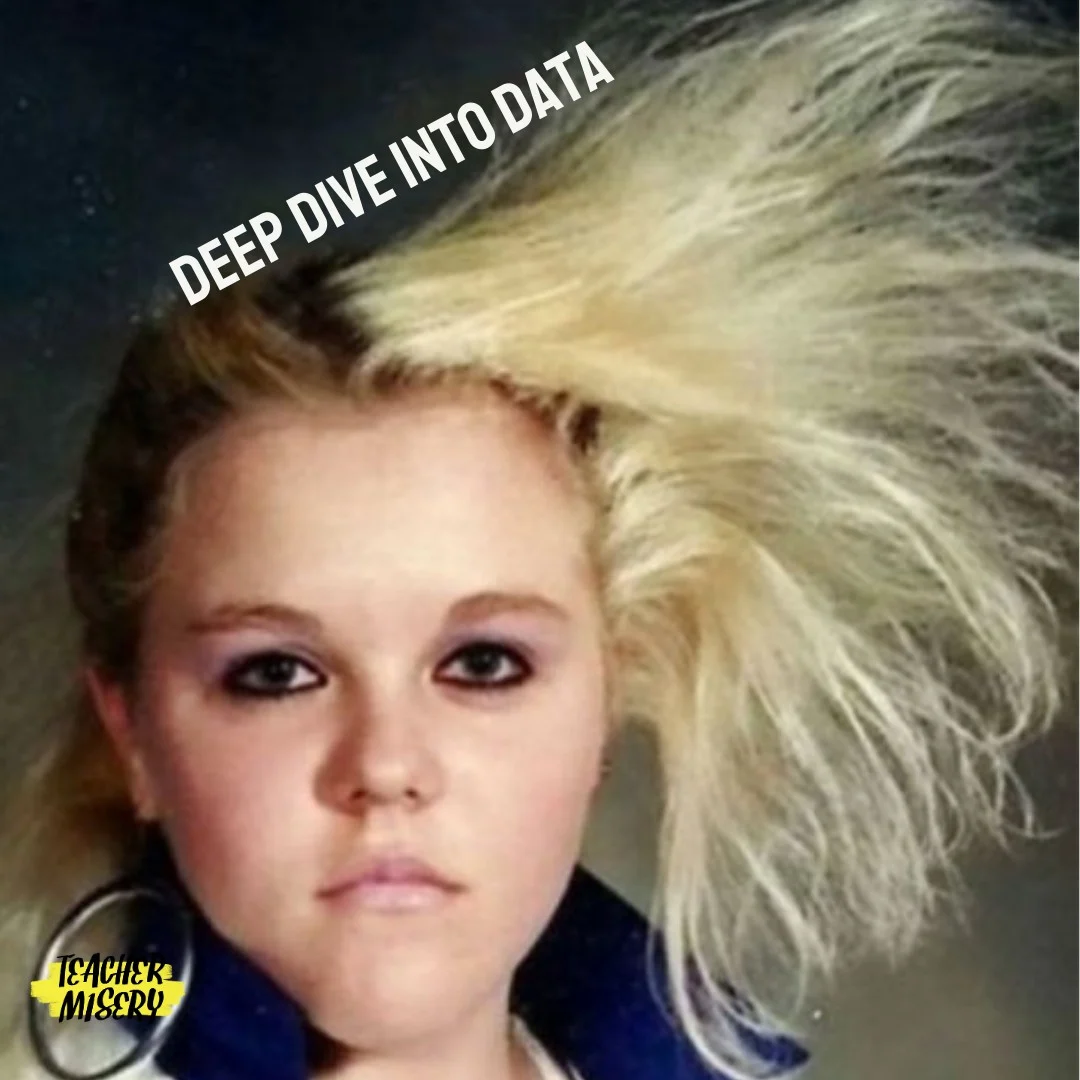
Get your scuba gear ready cuz it’s time to take a “deep dive into data!” If you hear this phrase, you are about to look at a ton of stuff you are already well aware of such as the test scores, reading abilities, and grades of your students. You will also be forced to compare your data with others and this is designed to make you paranoid that you are doing something wrong.
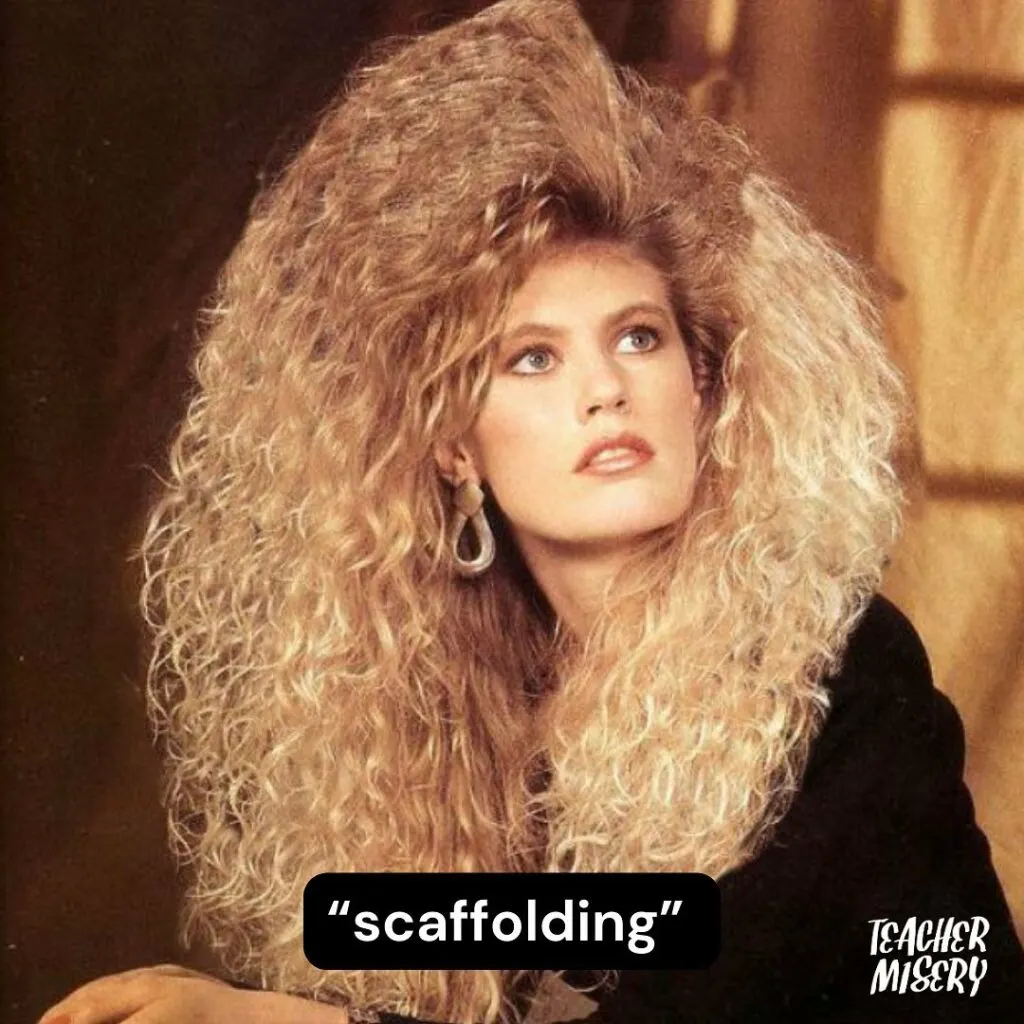
No, this has nothing to do with painting a house. Scaffolding in educational jargon means “the process of breaking lessons into manageable units, with the teacher providing levels of support as students grasp new concepts and master new skills.” In other words, you do things in small steps. But let’s face it, “scaffolding” sounds a whole lot fancier!
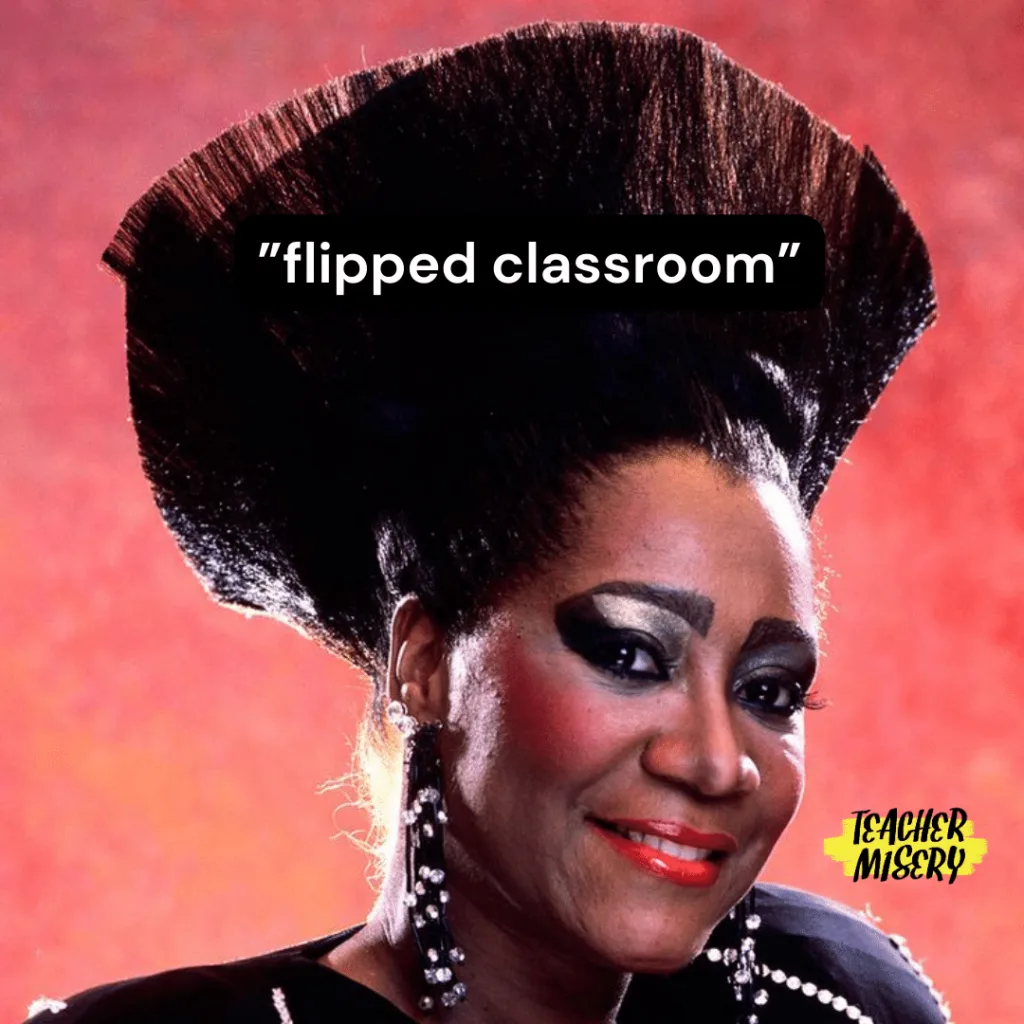
A flipped classroom is an interesting way of saying that when the teacher talks for the entire class it is very boring. Instead, students are supposed to read information before class, so that they can do more engaging things during class time.
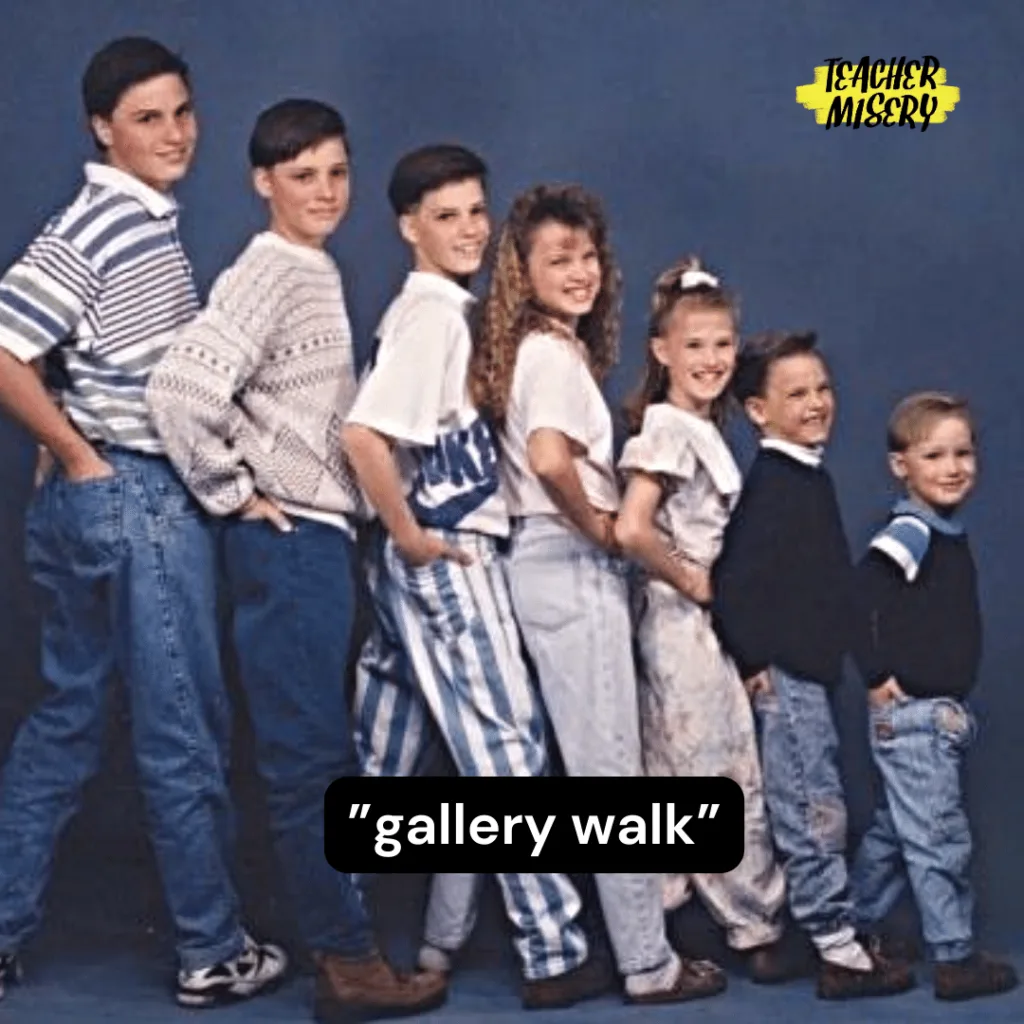
A gallery walk is a fancy way of saying “get up, walk around the room, and look at stuff.”
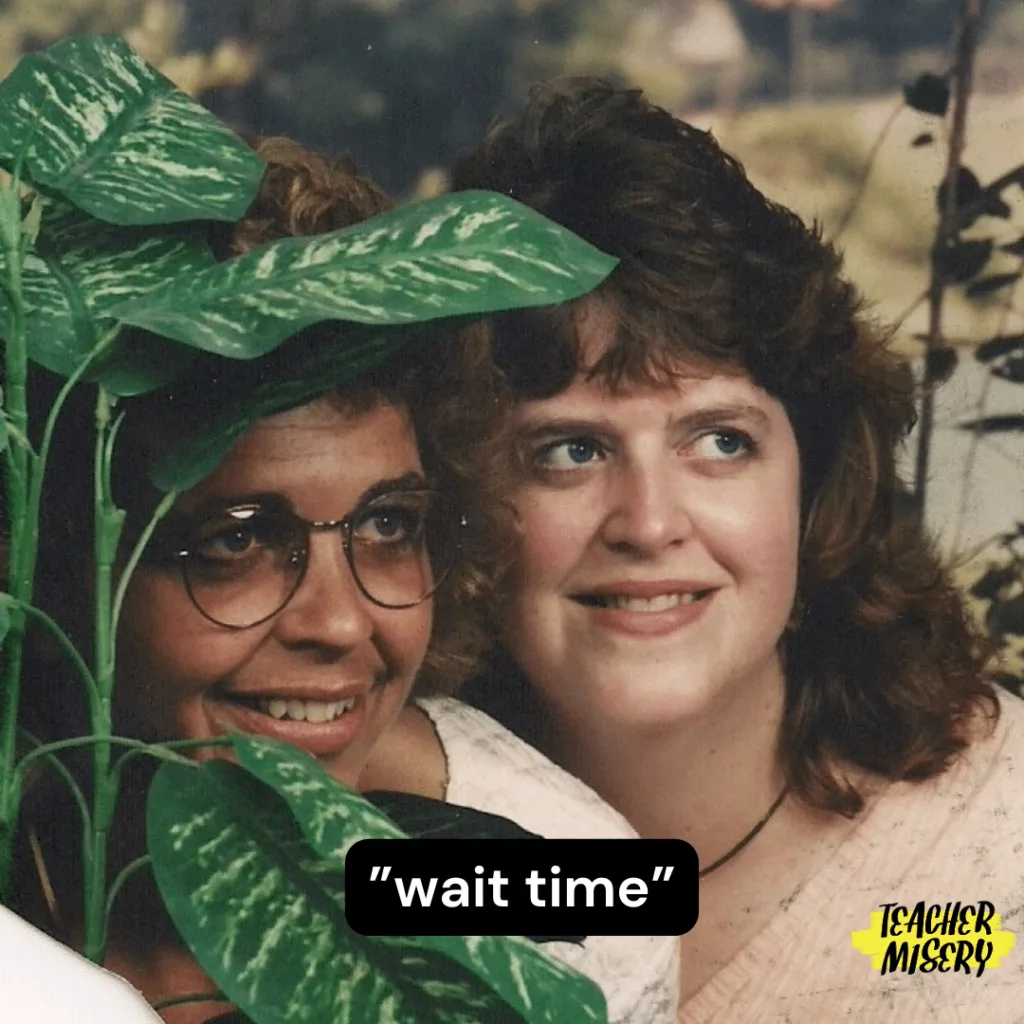
Wait time is a concept that involves waiting for a little bit after asking a question to allow the class or student to actually think about the question and form a response as opposed to thinking three seconds of dead air means no one understands or is listening to you.
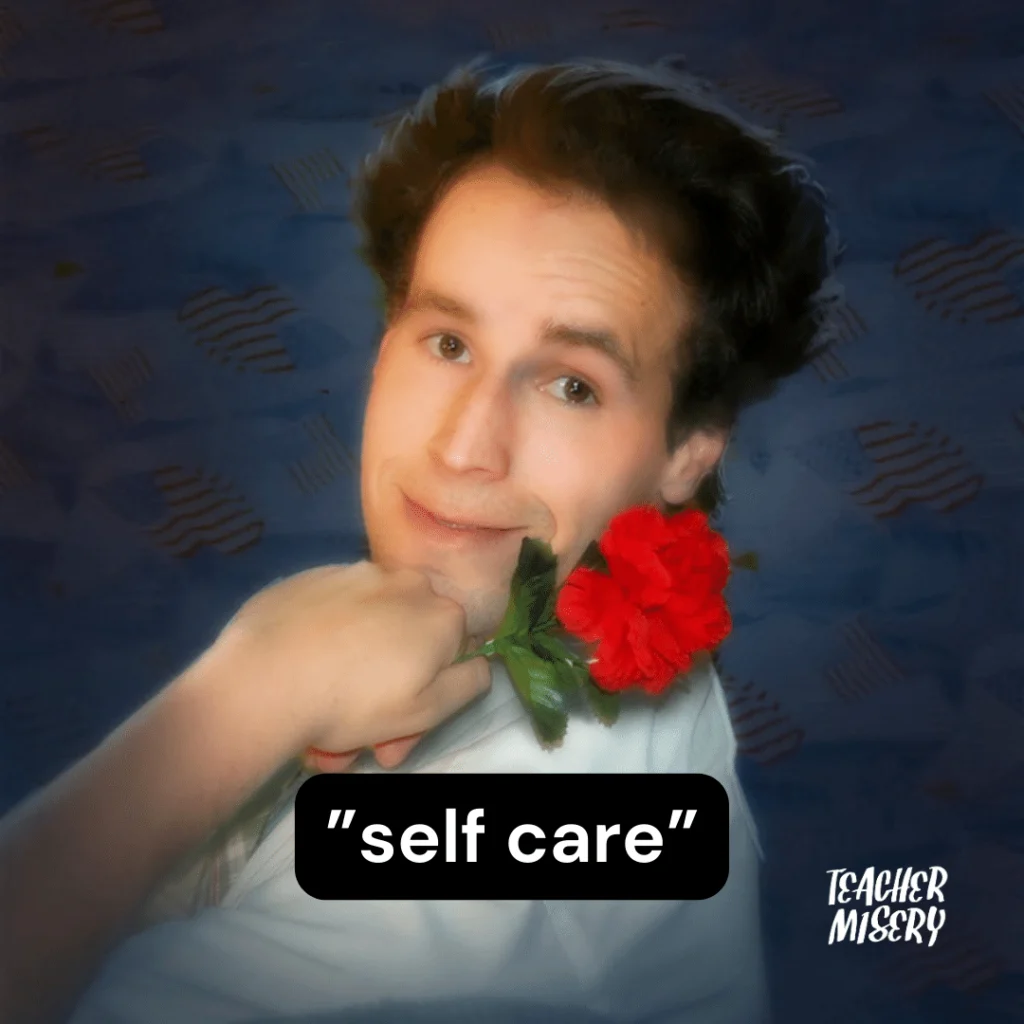
While “self care” is not exclusive to education, it is very hot right now amongst administrators to remind their staff about self-care. This reminder to take care of yourself usually comes right after a stress-inducing nightmare list of expectations and deadlines. Expect a brilliant suggestion for handling stress such as “take a bath” or “go for a walk.”
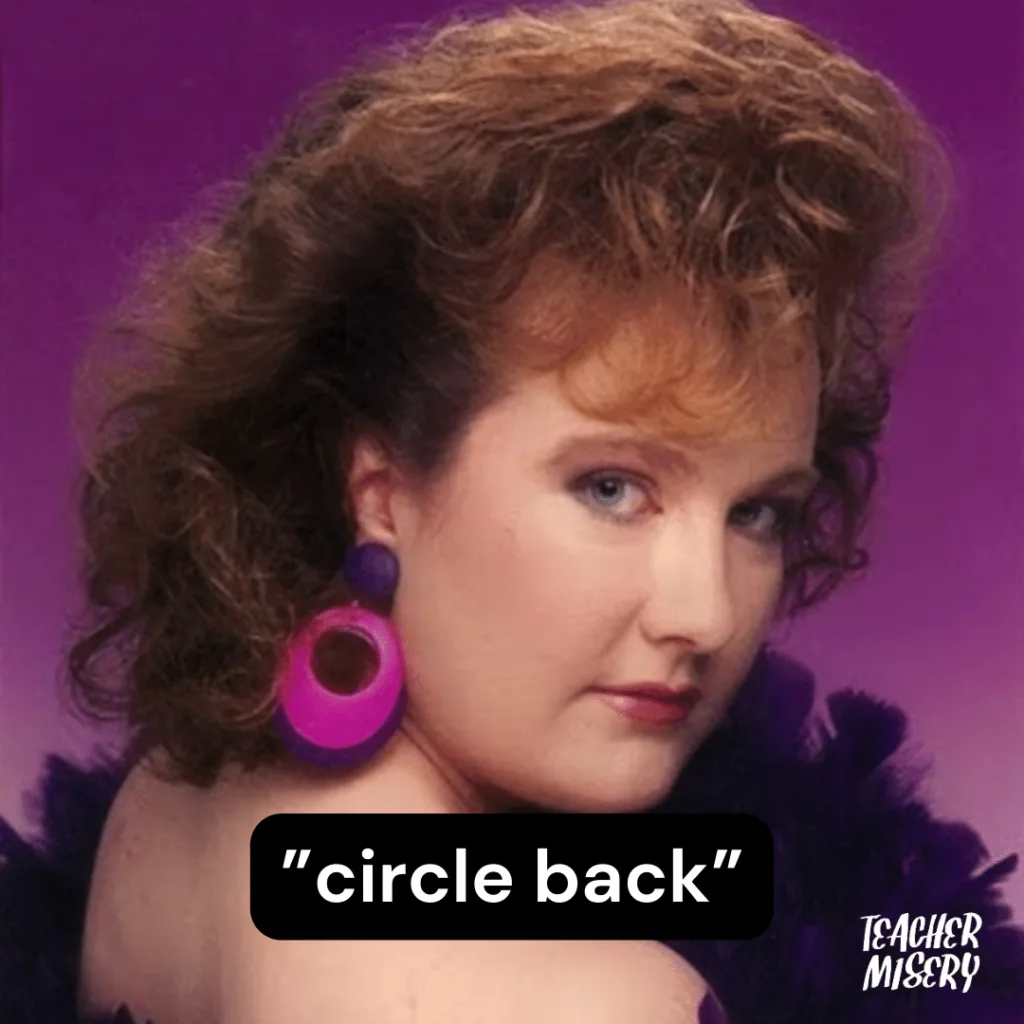
“Circle back” is not exclusive to education either. This is a much-hated phrase that is used in most workplaces and means “we will return to this matter at another time.” The delivery of this term often comes with stank on it because the person is abruptly ending the conversation by saying they will circle back on that issue. A normal reaction would be rolling your eyes when the person turns their head proceeded by having a pang of anxiety about when you are forced to circle back to that issue.
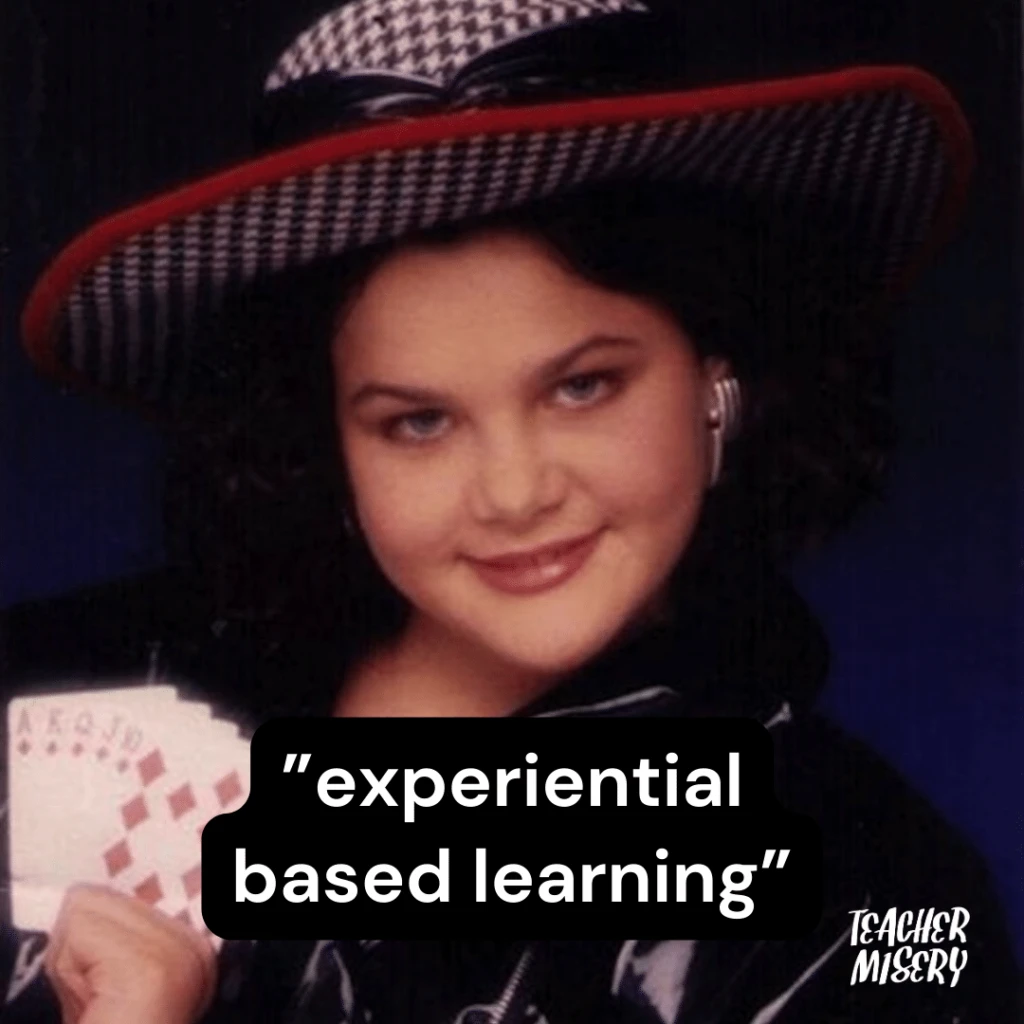
“Experiential based learning” means learning a concept through actually doing something as opposed to reading or hearing about it. So instead of giving kids boring math problems, let them gamble with real money or consequences as a more “hands-on” learning experience.
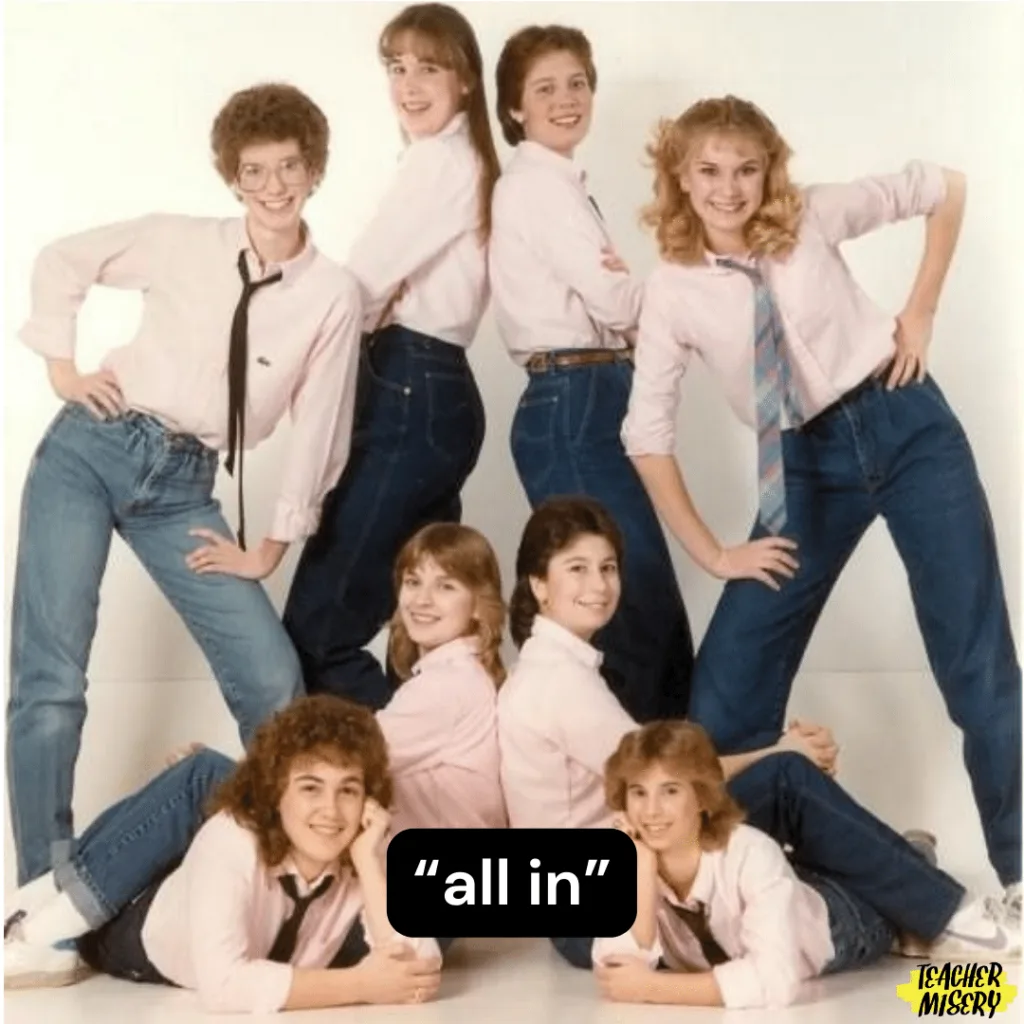
“All in” is a term that administrators use to shut down any protests or concerns from teachers and other staff members, suggesting they are not giving themselves utterly and completely to the school and its practices. This term is a major red flag and should alert the staff that way too much is about to be asked of them.
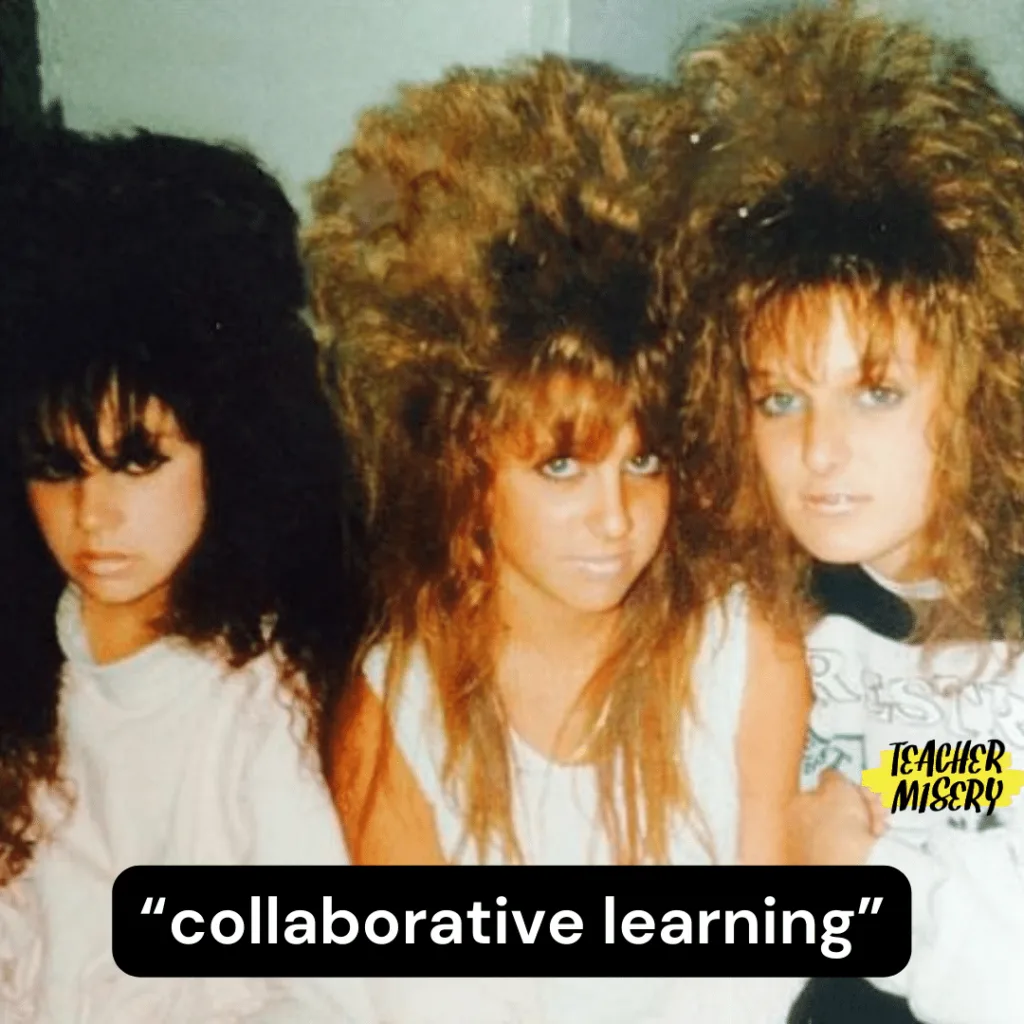
Collaborative learning is another fancy-schmancy way of saying “group work.” Maybe there are five students in a group who are collaborating on a poster about about a historical event. In this case, “collaborating” might mean two students actually do the research and create the poster while one student watches YouTube on his phone, another is napping under the desk, and the fifth group member contributed by eating the glue stick.
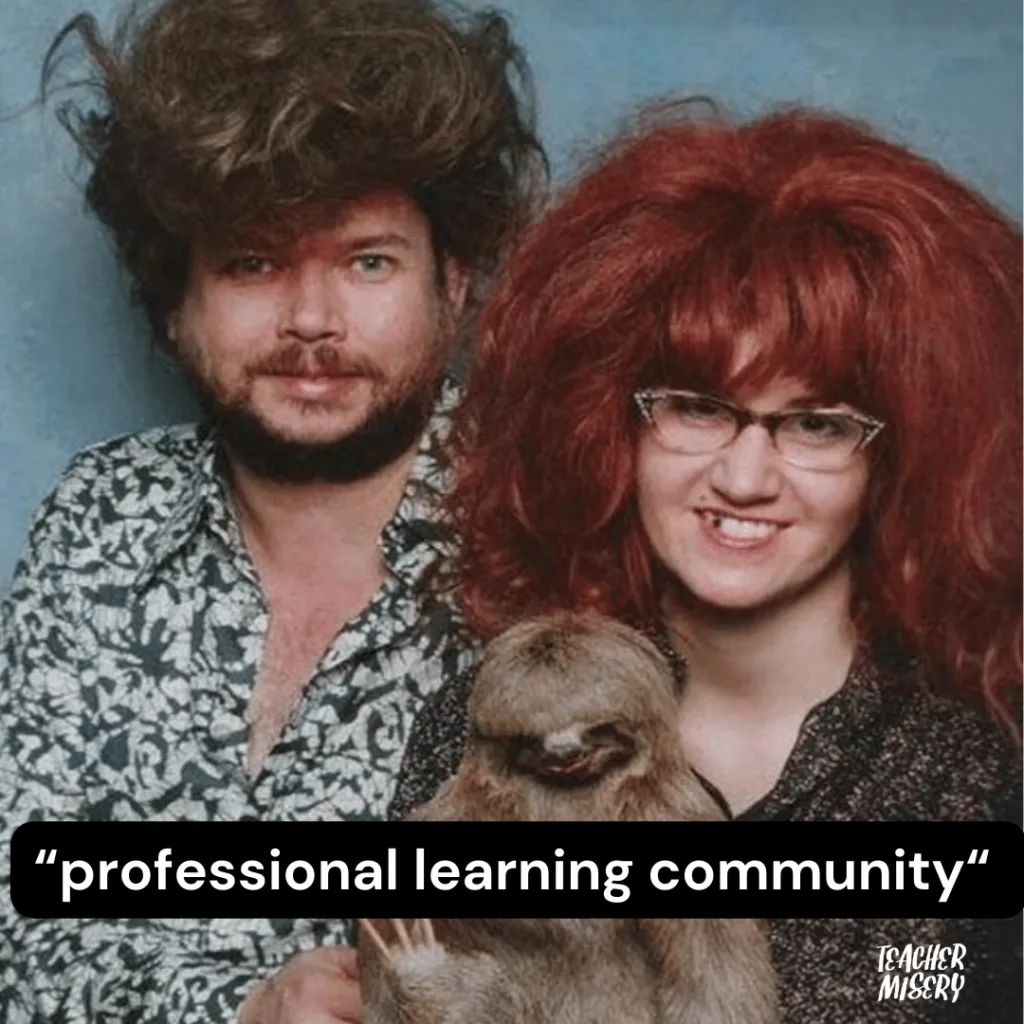
A professional learning community is “a group of educators that meet regularly (by force), share expertise (complain) and work collaboratively (share snacks) to improve the academic performance of students.
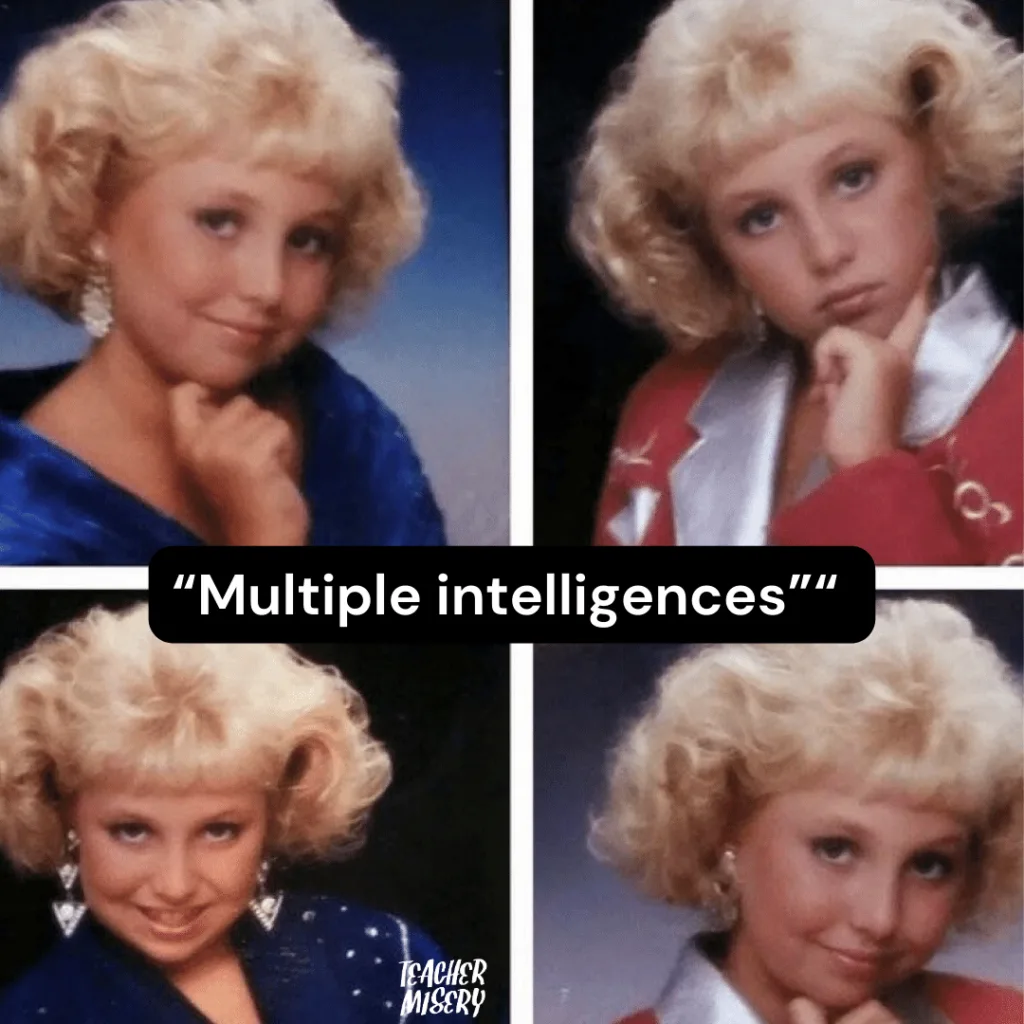
Multiple intelligences means that people learn in different ways such as visual, auditory, verbal, etc. And the teacher is expected to cater to all of the learning styles that exist in every aspect of every lesson at all times.
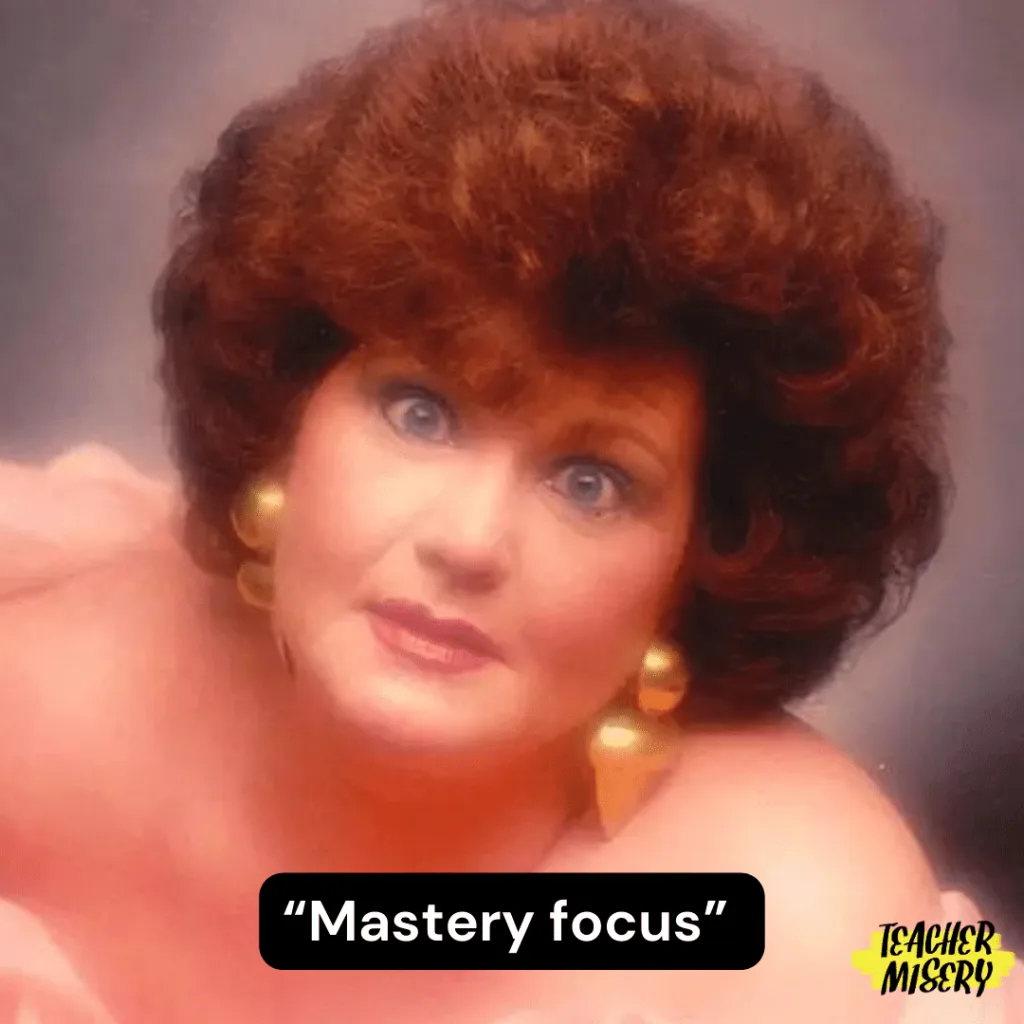
The definition of “mastery focus” is “students progress from one skill, activity, or lesson to the next only when they have shown an authentic understanding of the skills they need in order to truly master those complex tasks.” In simpler terms, you can’t write a sentence before you learn how to write letters individually. Another term that could be used in place of “mastery focus” would be “duh”.
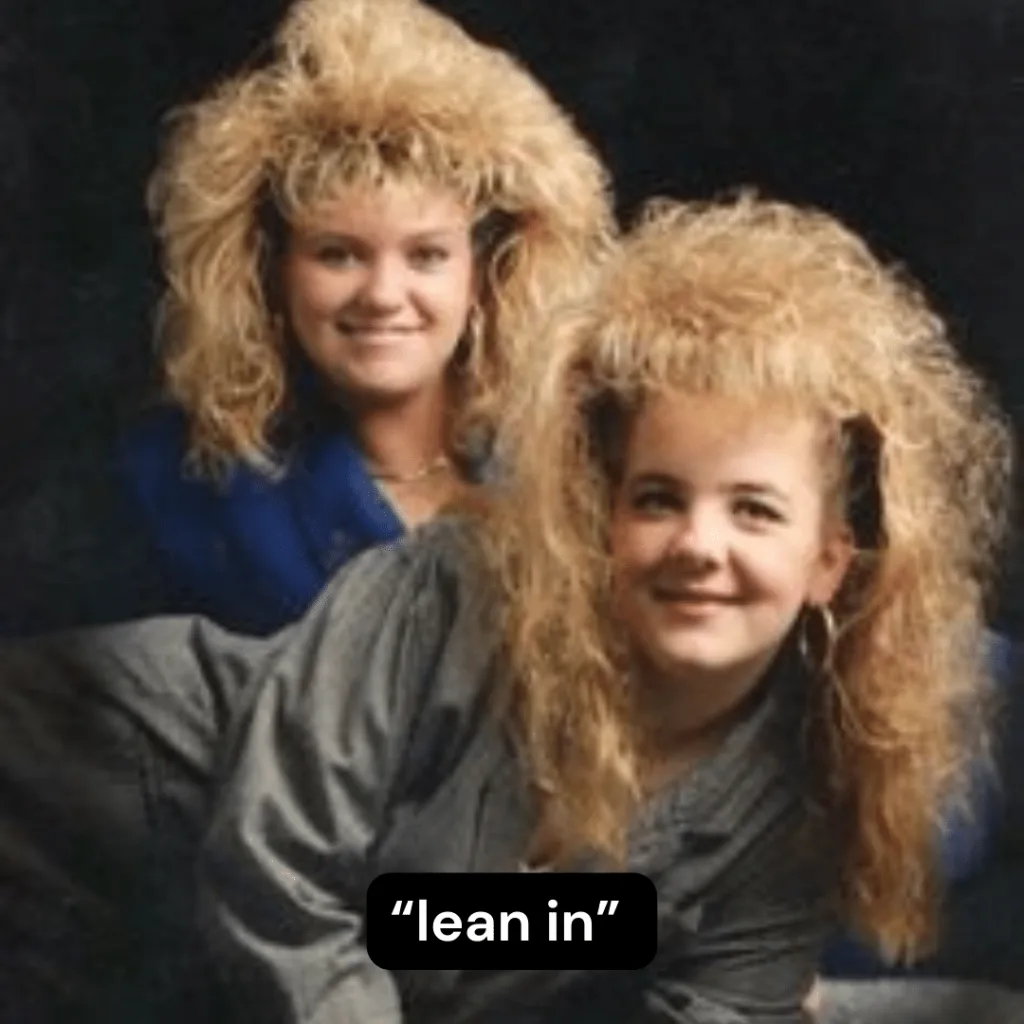
Similar to the concept of “all in,” leaning in involves doing more than expected, “getting your hands dirty,” or doing the tasks no one else wants to do. This is a vague way of telling teachers and staff to do more without actually telling them what more they can do.

“Pair and share” is an adorable way of simply telling students to find a partner to share something with. This is similar to the sweet little term of “elbow partners” which means a person sitting next to you. Adults love it when these terms are used because it makes us feel like professionals who have advanced degrees and stuff.
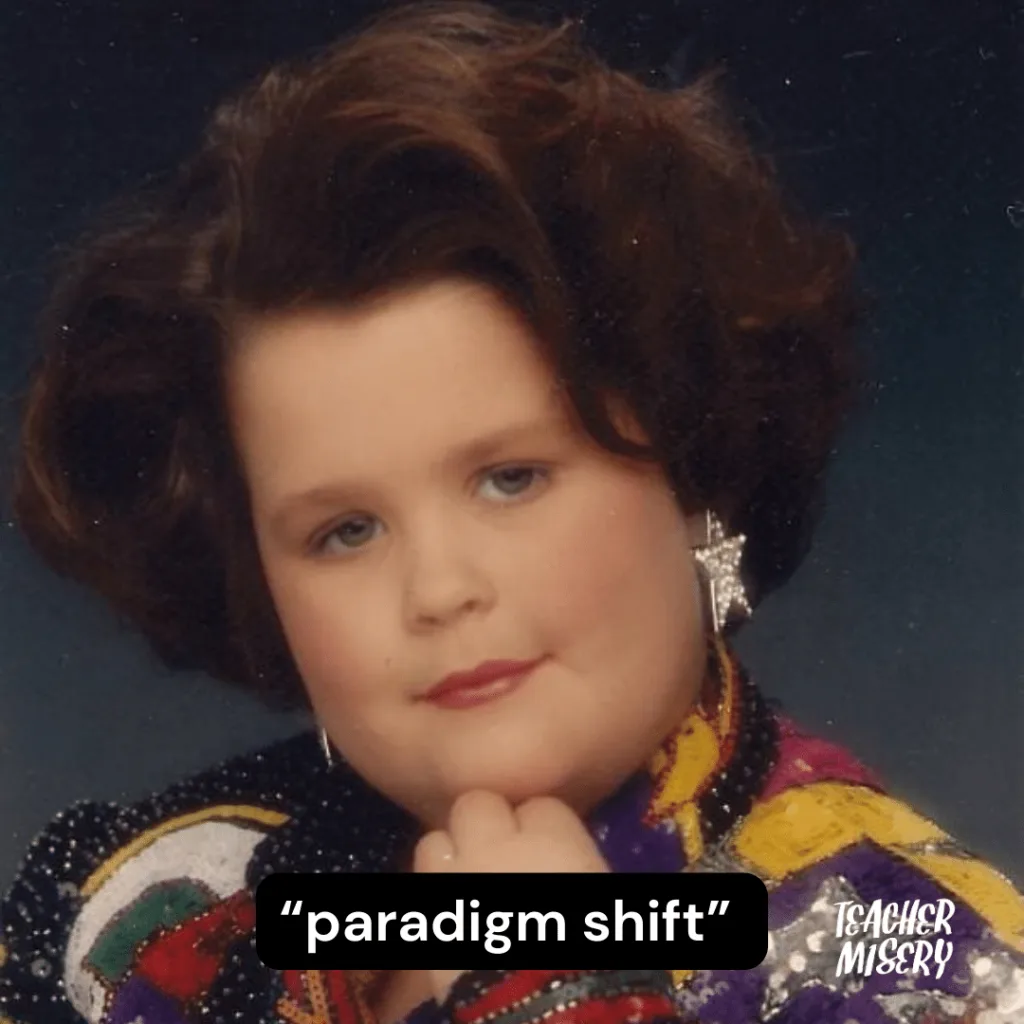
Don’t get too excited. This isn’t a sci-fi term or anything remotely cool. It’s similar to the “flipped classroom” in that the focus in the class moves from the teacher to the students.
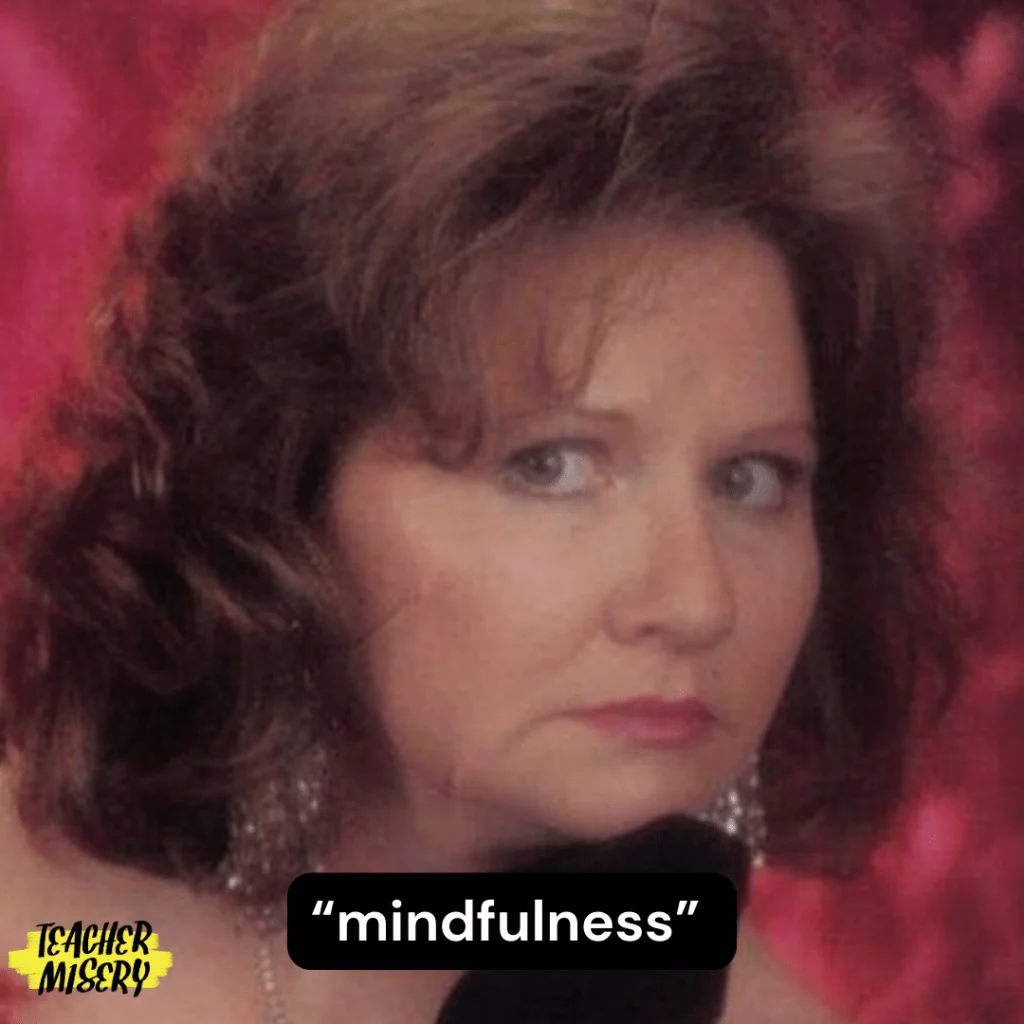
“Mindfulness” was once a meaningful term related to meditation in which you focus on being intensely aware of what you’re sensing and feeling in the moment. Education stole this term and throws it around as a way to remind teachers that every decision they make is being scrutinized so they should do every single thing with mindfulness to avoid losing their jobs.
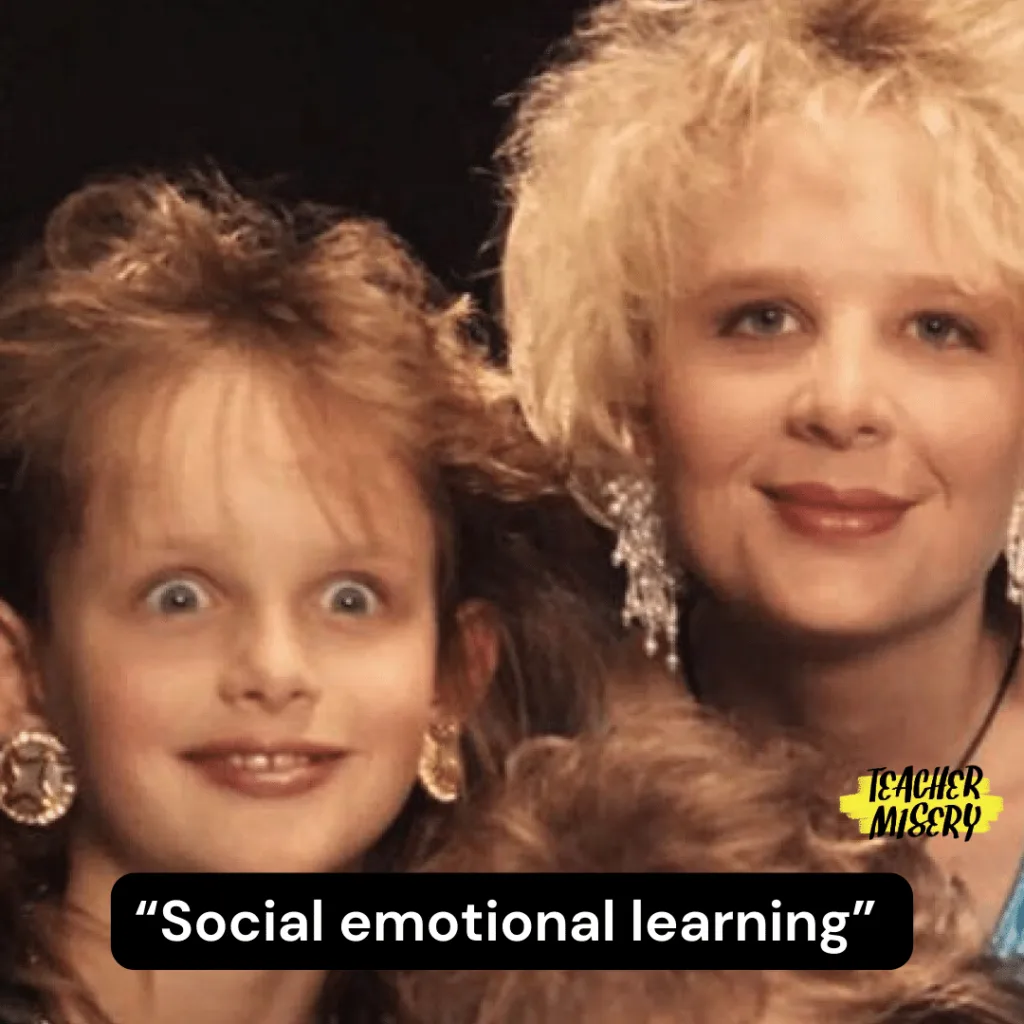
Social emotional learning is a term that has been given to some of the most important lessons students will learn in school and in life. Though not academic in nature, these lessons include self-awareness, self-management, social awareness, and basic empathy. Some parents think that teaching their kids to care about others is inappropriate and those people are terrifying.

Attention-seeking behavior is somewhat self-explanatory. The students is behaving in a way that will get them immediate attention from their teacher and the class. This is sometimes used as an excuse for a student’s inappropriate behavior. For example, the student was humping the teacher’s desk merely as a way to get the teacher’s attention because she had been spending too much time with other students.

“Robust” used to be a term that was used when describing pasta sauce but someone thought it would be brilliant to drag it into the education field. Read a few definitions of this term as it relates to school and I guarantee you will come away with more questions than answers. For example, according to Learninglab.org, “Robust learning is learning that achieves either or both better sense making through deep conceptual understanding and fast and accurate procedural fluency.” Thanks, Learning Lab. That means nothing. Another site saying that a robust classroom “is healthy, strong and vigorous.” Are we talking about show horses or a school?

Similar to “self care,” filling your cup relates to the saying, “You can’t pour from an empty cup.” Administrators will sometimes throw this directive out there before a holiday weekend so that even resting and doing things that are unrelated to school are somehow still related to school.
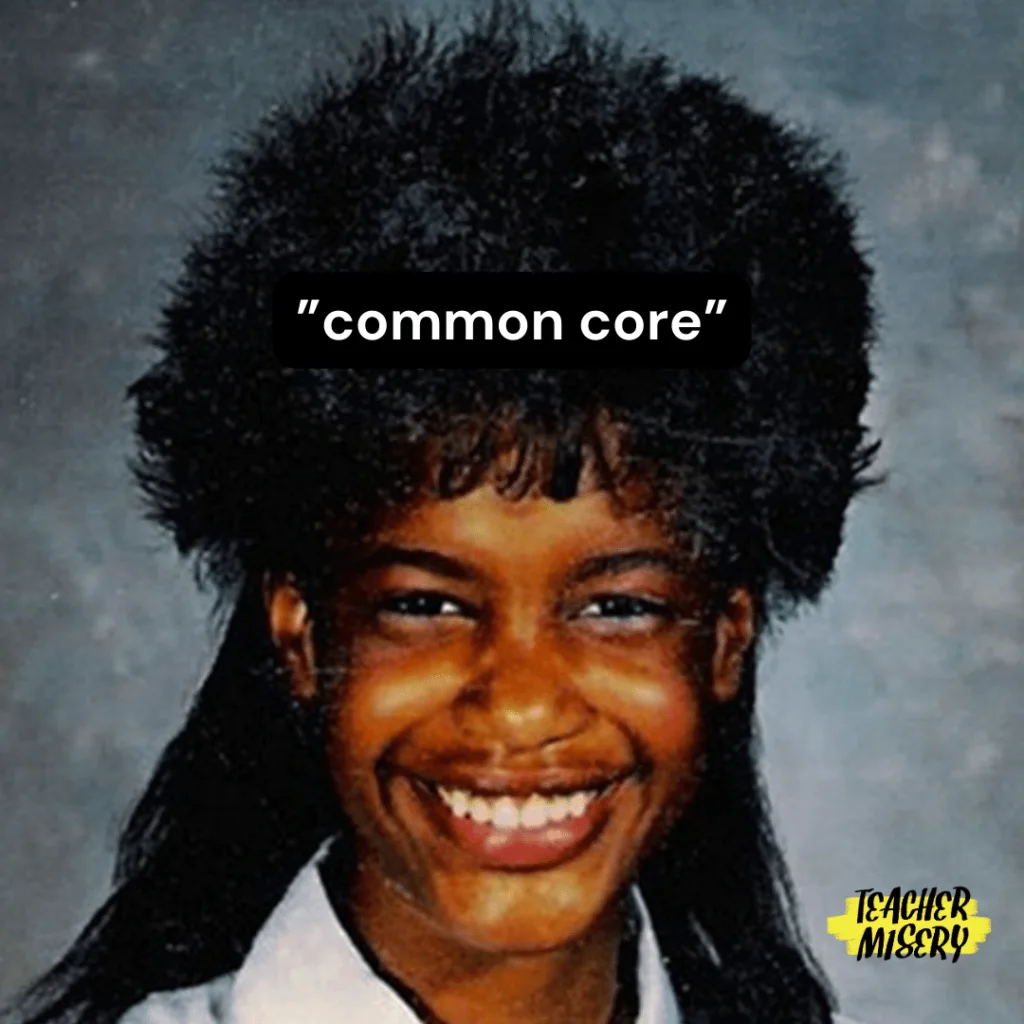
“The Common Core State Standards” provide learning goals for each state “to help prepare students for college, career, and life.” Most of these standards are very obvious and if you want to throw your computer out the window, read more about how these standards cost the nation about 80 billion in federal funds, with states awarding hundreds of millions of dollars in Common Core-related contracts to businesses including Pearson , McGraw-Hill Education CTB, Houghton Mifflin Harcourt and Apple.
If you enjoyed this post, you’d love Funny Excuses During Remote Learning and AP Test Graders Share Funny Wrong Answers!
Buy Some Merch · Support the Site!
Teacher Misery is by the teachers and for the teachers. Our mission to improve the lives of teachers everywhere.
If you’d like to support the cause, buy yourself (or the burnt-out educator in your life) a gift from our merch store. And, YES, they are all as sarcastic as you’d hope. 😉
Every dollar supports the commiseration!


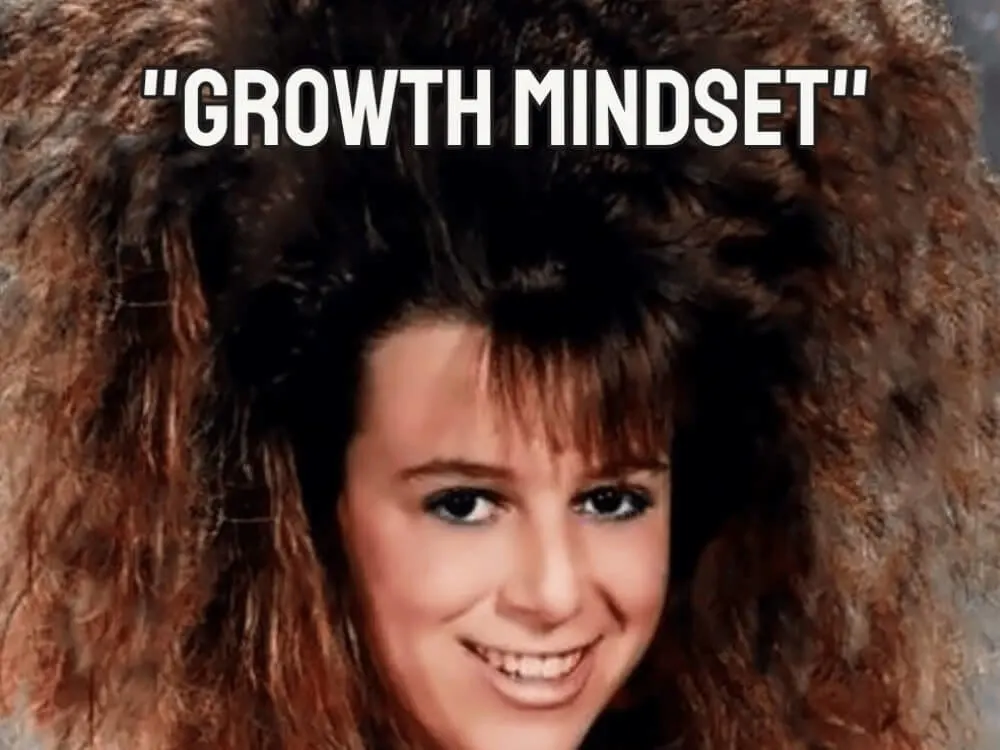
ralph lelii
Wednesday 18th of September 2024
What is consistent about the educational terminology is that it has no connection to, and hence no effect on, the actual work that teachers do: teaching students. They are two parallel universes.
Alison
Friday 3rd of November 2023
This year we have Guiding Coalitions (aka Leadership Teams); CFA or Common Formative Assessment (aka a quiz that is mandated to be used by every teacher over a portion of content that was just covered); and CSA or Common Summative Assessment (aka end of unit or lesson test; again mandated to be used, be the exact same test, and given on the exact same date as ever other teacher of your grade and subject).